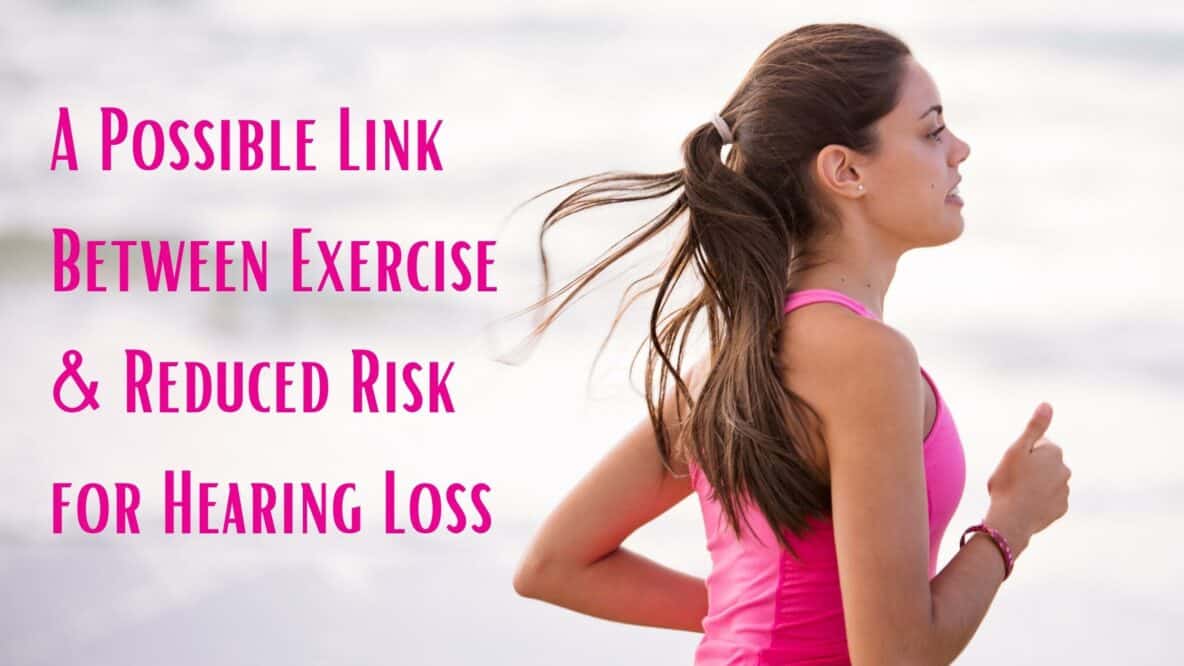As the ways we define exercise continues to expand, so do its proven benefits. There are so many reasons to move your body! It calms anxiety, lowers your risk of all sorts of illness and health complications, boosts your mood, and much more. Now, we know that a habit of daily movement also reduces your risk of hearing loss.
A new study shows the hearing health benefits of exercise
Recently, scientists ran a study comparing the hearing of mice who’d been sorted into two groups. Group 1, mice who exercised, showed just a five percent hearing loss during their lives. Group 2, mice who were not allowed exercise, fared drastically worse with hearing loss at twenty percent.
How cardiovascular health impacts hearing
Our ears might seem a long way from the heart, but our cardiovascular health has a huge impact on the healthy structures of our ears. Our cells require oxygen, which is delivered via our efficient and strong circulation system. A fresh, oxygen-rich blood supply to the various cells within systems throughout our bodies helps to keep those very systems functioning.
Within the inner ear, we have fine cells that are integral to our healing process. These cells receive sound information and transmit it to the brain. They are non-regenerative, which means that when they are damaged, we do not create new cells. Instead, we can translate less external sound into sound information for our brains. We hear less.
As we age, all of our systems slow down. As demonstrated by the mice study, exercise can help us to maintain higher levels of cardiovascular health and thus, more robust circulation of oxygen-rich blood to our cells (like the important ones in our inner ear).
Hearing loss and exercise is a circular problem
As hearing loss progresses, people often report symptoms of isolation and depression as their condition causes them to withdraw from life. In this sense, lack of exercise and hearing loss become a circular problem. Along with a turning inward, mobility decreases, and people with hearing loss are less likely to engage in activities like exercising or hobbies that would have previously provided an outlet for movement.
We end up in quite a quandary when an activity that could improve our hearing health becomes unavailable due to our poor hearing. But that’s not the end of the story, hearing loss is a treatable condition. Concurrently, by expanding your definition of exercise to incorporate most types of movement, it becomes slightly more accessible.
Find a type of exercise that you like
If you’re a person who can’t stick to a regular exercise routine, try expanding your definition. Mirriam Webster defines exercise as “bodily exertion for the sake of developing and maintaining physical fitness.” Essentially, exercise is putting your body into action. Without having to hit a treadmill, aerobics class, or CrossFit gym, simply find a movement practice that activates large muscle groups and elevates your heart rate.
Not all exercise has to fall under traditional fitness categories. There are all sorts of movements that benefit cardiovascular health. Ballroom dancing, walking, birding, golfing, roller skating, casual biking, and swimming are all ways to get your body moving.
Yoga or tai chi might be more your pace. Gentle stretches help to increase blood flow and meditation is proven to help with the circulation of blood to the brain and other organs. Both yoga and tai chi can be considered moving meditations — so while it’s low impact, you’re getting double the benefit!
Treat hearing loss to return to exercise
If hearing loss has already begun to impact your life, make an appointment for a hearing consultation today. We can explore avenues of treatment that could help you return to a life of enjoying more movement.
Hearing loss can have you avoiding situations like group exercises classes, dance classes, or simply a walk with a good friend. It can also make balance unsure, which provides yet another reason why engaging regularly in a movement practice might seem unappealing.
You might benefit from a hearing solution like hearing aids, which can reduce effort and make listening easier. You deserve to live your fullest and most vibrant life and we can help by providing the best possible hearing health.

